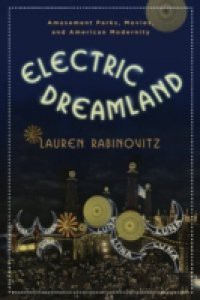More than two thousand amusement parks dotted the American landscape in the early twentieth century, thrilling the general public with the latest in entertainment and motion picture technology. Amusement parks were the playgrounds of the working class, combining numerous, mechanically-based spectacles into one unique, modern cultural phenomenon. Lauren Rabinovitz describes the urban modernity engendered by these parks and their media, encouraging ordinary individuals to sense, interpret, and embody a burgeoning national identity.As industrialization, urbanization, and immigration upended society before World War I, amusement parks tempered the shocks of racial, ethnic, and cultural conflict while shrinking the distinctions between gender and class. As she follows the rise of American parks from 1896 to 1918, Rabinovitz seizes on a simultaneous increase in cinema and spectacle audiences and connects both to the success of leisure activities in stabilizing society. Critics of the time often condemned parks and movies for inciting moral decline, but in fact they fostered womens independence, racial uplift, and assimilation. The rhythmic, mechanical movements of spectacle also conditioned audiences to process multiple stimuli. Featuring illustrations from private collections and accounts from unaccessed archives, Electric Dreamland joins film and historical analyses in a rare portrait of mass entertainment and the modern American eye.

